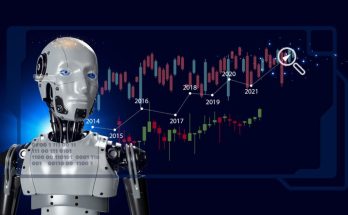The forex market in Middle East region has reached new frenzies with the eFM volume of trading having achieved spectacular growths of 46 percent compound annual growth rate since the year 2016 to 2020. This inflammable expansion has seen regulators in the region embark on colossal changes to their supervision systems.
The changes in regulation of forex in the Middle East region are realigning the roles of brokers and exposure of world currencies markets to traders. Be it new forms of virtual asset arrangements or higher compliance with regulation, these developments are posing both opportunities and challenges to market players.
This trend of regulation does not but underline the intention of the region to be competitive internationally as well as sustain the competitive force in the world financial center. States such as UAE, Saudi Arabia and Qatar are on the frontline of new change by way of a wholesale restructuring of their financial regulations.
Current Regulatory Situation
UAE: Bellringer
The UAE in the recent past, continues to be the engine of regulatory innovation in the region. The Financial Services Regulatory Authority (FSRA) revised its framework in January 2025 and it is possible to note that the focus was made on ensuring more international alignment adding the characteristic of such evolution.
These changes include a licence-free jurisdiction to trade in virtual assets and commodities spot trading. The FSRA has also streamlined the partnership and clearing houses and there is no unnecessary regulatory burden yet the degree of oversight is acute.
In UAE, the Securities and Commodities Authority (SCA) have sovereign power that applies to forex trading where, among others, there is a mandatory segregation of accounts and open pricing regulations. This is one of the steps that will ensure that more conventional and new practices are covered in the financial well.
Saudi Arabia: Establishing the Controls
The forex regulation adopted in Saudi Arabia has two competent bodies that work at the same time. The Saudi central bank (SAMA) and Capital market authority (CMA) initiate the regulation and management of the forex trading that ensures it is free of illegal practices of fraud and fair trading.
Localization plans of ambitious dimensions are being implemented under the Kingdom which directly impact on forex brokers. These have included workforce nationalization and local content requirements in a variety of sectors. Failure to do so can result in severe punishment or restriction in biding of government projects.
Qatar: Control Experts
The Qatar financial centre regulatory authority (QFCRA) is the supervisor of forex market in Qatar. This is a financial regulatory agency that ensures compliance with the local financial regulation and implementation of fair trading conditions.
The QFCRA has displayed clear terms of licencing on the forex brokerage companies with emphasis on the issues of transparency and safeguarding the customers. This kind of an approach has attracted foreign brokers who desire to establish operations in the area in a well-regulated environment.
Massive Regulatory Changes in 2025
AUSTRAC The improved AML/CFT Enforcement Control is founded on the basis of the improved AML/CFT Enforcement Control.
The Anti-Money Laundering (AML) and Counter-Financing of Terrorism (CFT) enforcement carried out by the regional authorities has become more vigorous because of the incident. This will be in line with the recommendations of the Financial Action Task Force (FATF) as well as in order to demonstrate adherence to the international standards within the region.
Most critical requirements are:
- Effective know your customer (KYC) practices
- Ultimate beneficial ownership disclosure
- Enhanced transaction surveillance units
- Praiseworthy reporting and periodic compliance audits
Virtual Asset Service Providers (VASPs)
UAE has further released mandatory registration requirements to all licensed VASPs on the Integrated Enquiry Management System (IEMS) of the UAE Financial Intelligence Unit. It is a secure online portal that deals with the AML/CFT directions and national authority investigations.
Insured VASPs will be required to enroll their Money Laundering Reporting Officer (MLRO), Compliance Officers using goAML credentials. The registration deadline was stretched to May 30, 2025, and failure to do so was threatened to have been implemented.
Corporate Tax Compliance
The introduction of the corporate tax regime in the UAE has necessitated the inclusion of new standards of compliance that need to be coined with by the Thailand forex brokers and other financial service companies. These are wholesome transfer pricing provisions followed economic substance reporting.
Tax governance policy of the multi-national forex business within the whole Middle East must be rethought now. These requirements will be a significant change in the local tax regime.
What Are the Major Compliance Requirements of Forex Brokers?
The Middle East forex market makers will be forced to traverse numerous critical domains of compliance:
- The propriety of licensing: The national authorities should license all the brokers. In the UAE this means an SCA license; in Saudi Arabia it means either a SAMA license or CMA license; and in Qatar a QFCRA license.
- Client Fund Protection Regulators: Separation of client assets Client accounts must be segregated and this means that trader funds are separated to the running capital of the broker. This protects the traders against insolvency and or financial difficulties of the broker….
- Transparency Standards: Brokers are required to impart transparent prices, extensive disclosure of danger, and services terms and conditions. This includes narrating how forex trading may cause leverage risk and losses.
- Data Protection: Newly developed information privacy policies across the region require any powerful data control plans. Brokers must guard data processing places and foreign transmissions.
- ESG Reporting: There is an increasing use of Environmental, Social and Governance models particularly in UAE and Saudi Arabia. Big forex brokers may have a reason to incorporate ESG indicators into the reporting of compliance.
Forex Brokers and Traders Impact Impact of Forex Brokers and Traders
Broker Adaptations
Foreign foreign exchange dealers are restructuring their operations according to the requirements of the Middle East. They are opening regional offices and hiring regional compliance officers to ensure that they can comply with changing rules.
Multi-jurisdictional compliance has as well forced some of the brokers to limit themselves to only selected countries rather than expanding broadly within the region. It is through this localization tendency that the incoherency of the regulations within Middle Eastern market is testified.
Trader Protections
Greater advances in the regulation mechanisms grant a higher level of protection to retail forex traders. Improved dispute resolution and regulatory redress has an apparent advantage of giving an assurance of traders to the market.
This emphasis on the transparency of brokers means that traders have a better access to information regarding risks and conditions, as well as fees. This democratization of information eliminates the gap between retail-participants and institutional-participants.
Technology Integration
Regulatory changes in the region are catalysts of the technological innovation. Automated compliance systems and real time monitoring are becoming a common prerequisite of licensed brokers.
Machine learning and artificial intelligence regarding the compliance proceedings enable brokers to work with demanding reporting necessities making the operation of their business less costly.
Regulatory Masking and visionary prospects
Continued Harmonization
The forex regulatory environment in Middle East is also likely to continue coming nearer to the global standards. This kind of harmonization process is beneficial to both traders and brokers since it allows more predictable operating conditions.
Regional cooperation is on the increase on questions of regulation, best practise and harmonization of the enforcement efforts of authorities. This is a partnering formula that promotes integrity of the forex markets in the Middle East.
Digital Assets Integration
Continued regulation shift will be accompanied by the growing trend of digital assets and cryptocurrencies. Authorities are establishing systems in which innovation is possible without disrupting the stability of a market and safeguarding the investors.
Being the leader in virtual assets regulation allows the UAE to be a regional leader in terms of digital currency trading and other activities related to forex.
Sustainability Focus
Regulatory decision making is also giving notable concern to the issues of environmental and social governance. Forex brokers could also be called to present business in sustainable fashion besides working towards the enlargement of economic demands.
Conclusion
The reforms that have been done in the Middle East are focused on a new dynamic toward a greater level of transparency, investor protection, and congruence of international back as it is applied to forex regulation on a greater level. In as much as these changes would be a compliance burden to brokers, the changes will in the long run lead to an improvement of improved integrity of the market and security of the trader.
This has made the region a more attractive place of forex activity in the global front due to the regulatory excellence of the region. The market rates to one of the booming forex markets in the global market will be the privilege of the brokers and traders that adapt to such evolving needs.
In order to succeed in such an environment, it is imperative to be sensitive to the regulatory trends, possess compliance structures and, it is important to liaise with properly licensed brokers. The infiltration of forex laws into Middle East has paved the path and there is still much left to be explored by many which would be quite fascinating.



